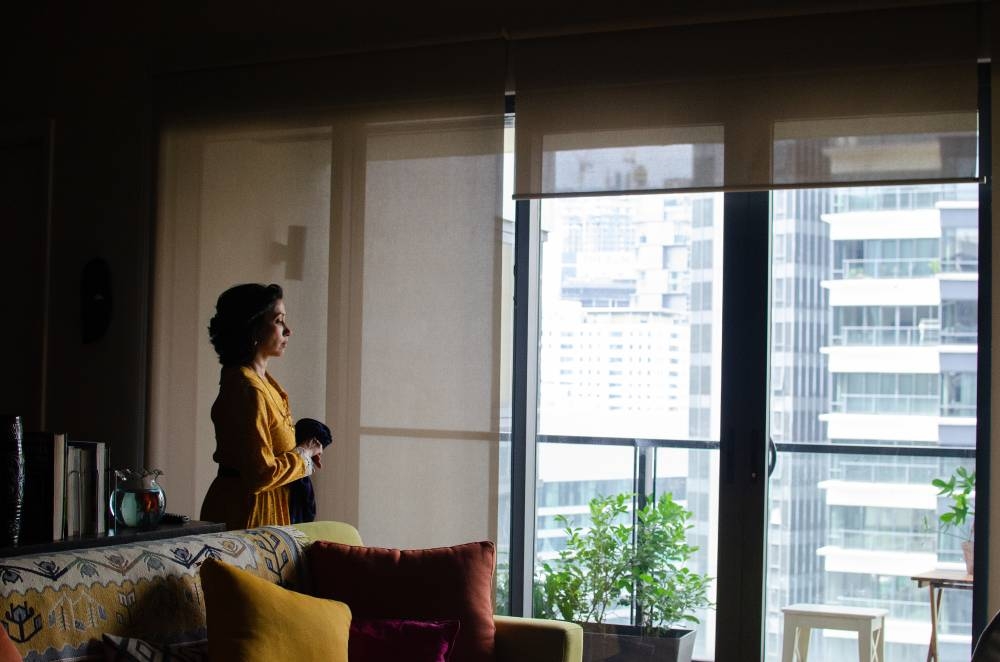KUALA LUMPUR, Sept. 25 — Datin Sofia Jane had only recently returned home to Malaysia after some years abroad due to the Covid-19 travel restrictions, and a screenplay (about Muslim women) offered to her earlier this year caught her attention.
Titled Maryam Dari Pagi Ke Malam, Sofia said at that moment she related to the feeling experienced by the titular protagonist: Isolation.
“When I was approached to take a look at the script to see whether I was interested, I was a bit taken aback. It’s not very often that you get a woman in that age bracket carrying the whole story, where she’s in every single scene,” she told Malay Mail in a recent interview.
While Maryam holds the story together with her sole presence, Sofia also said she feels that Maryam is alone in many ways.
“The idea of isolation comes in many forms – it’s not just about being lonely,” she offered. “Being isolated could be by society, it could be by family.
“Maryam is isolated from day to night, without anybody to hear what she wants to say. Nobody takes heed of what she thinks is important in her life.”
In the film, Maryam is a gallery owner in her 50s from a noble Malay family who wishes to marry Damien, her younger partner from Sierra Leone.
Her father, played by actor and former broadcast journalist Omar Abdullah, does not consent to the marriage, prompting Maryam’s day of feeling isolated as described by the title.
Sofia found that dissecting the character during filming made her realise that in some cases, even coming from a privileged background does not matter for a woman because various institutions can still limit what she can do.
Director Badrul Hisham Ismail said the focus on how much the religious institutions affect Malaysian Muslims’ private lives was a deliberate choice when he was crafting the character with fellow screenwriter, renowned author and playwright Faisal Tehrani.
The film was Faisal’s first foray into the silver screen, after decades of writing novels, poetry and for theatre.
“After discussing what aspect of personal life to touch on, I decided on the idea of choosing a partner. At least for a Malay-Muslim in Malaysia, to get married you have to get permission from a lot of people,” Badrul explained.
To get married, a Muslim woman requires the consent of her wali, who is her birth father or other nearest male relative. During the ceremony of akad nikah or solemnisation, the husband would enter into an agreement with the wali to take the woman as his wife.
Problems can arise if the wali refuses to her marry her off, leading to Muslim women being forced to go through the religious bureaucracy.
The film illustrates this dilemma facing Maryam, an already accomplished and successful woman at her age who despite all her independence, still requires a man’s consent for her first marriage.
“It’s still a regular occurrence but there are ways to go around it and that’s what the story is about,” Badrul said.
“If you don’t get permission from your father, you can ask the Shariah court to step in but you have to make the case for it … They usually just allow it, but it’s the idea that you have to go through that instead of it being just your own decision.”
Badrul said they chose marriage as the topic to focus on as it is one of the most personal decisions a person can make, but encroaching religious institutions can instead turn it into an impersonal choice.
The producers said to approach this topic, the film will playfully dissect the tensions, contradictions, and irony that surround polite society in Malaysia.
The 90-minute film also stars other renowned names in the industry such as Susan Lankaster, Vanidah Imran, Roslan Madun, Azman Hassan, Pekin Ibrahim and Bella Rahim in supporting roles.
Funded by Penjana Kreatif and the Arthouse-Festival Feature Film Grants from MyCreative ventures, it is currently under post-production and will be shown in the international film circuits before any entry into Malaysian cinemas.
Badrul was trained at the New York Film Academy, and his films have been featured in a number of international film festivals, including among others the International Film Festival Rotterdam, Art of the Real at Lincoln Center in New York, the Singapore International Film Festival and the Jogja-NETPAC Asian Film Festival.
The film is produced by Anomalous Films, most recently known for the series Keluarga Baha Don which won Best Comedy Series and Best Comedy Programme at the Asian Television Awards in 2020 and 2021, and Rhu Graha, a development studio under multi-disciplinary creative service provider Gunung Cherita.
For any query with respect to this article or any other content requirement, please contact Editor at [email protected] 2017 Malay Mail Online
Read More News:
Rehair Lab – Ground-Breaking Innovation to Counter Male Pattern Baldness!

